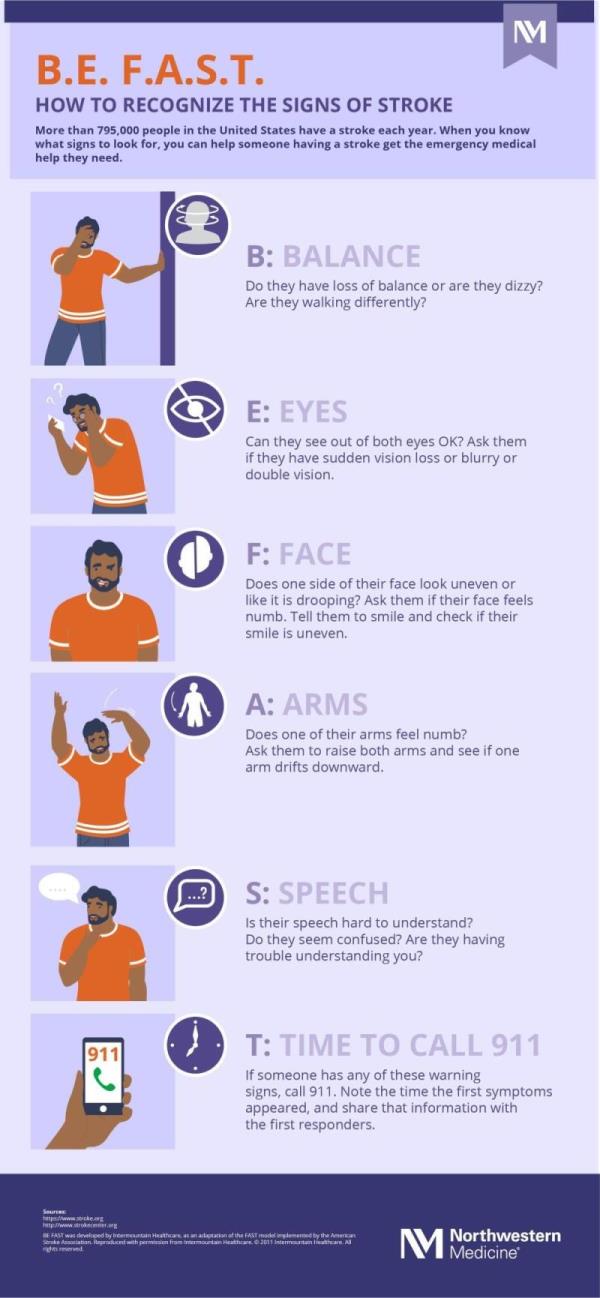
Prevention
Take action now to prevent strokes and reduce the likelihood of permanent disability.

Back to Comprehensive Stroke Centers
A stroke is a medical emergency, and you should call 911 immediately if you think you or someone is having a stroke. Early treatment after a stroke can reduce damage to the brain and make a huge difference in recovery.
Click here for location and appointment information.
Strokes act fast, so you have to act FAST too. Every minute counts for stroke patients, and using the guidance in the acronym FAST can lead patients to the stroke treatment they need.
The most effective stroke treatments are only available if the stroke is recognized and diagnosed within the first three hours of the first symptoms. Patients having a stroke may not be eligible for some stroke treatments if they arrive at the hospital after the three-hour window.
If you observe any of these symptoms, you should call 911 immediately. Don’t hesitate, waiting to see if symptoms get worse or better before making the call. Every minute counts. The longer a stroke goes untreated, the greater the potential for brain damage and disability.
Minutes can make the difference between recovery or death.

It’s estimated that up to 80% of all strokes are actually preventable. By keeping in mind key risk factors and making certain lifestyle changes, you can diminish the likelihood of having a stroke. Stroke prevention is particularly important for stroke survivors. Taking action today to control your risk factors can reduce your risk or possibly prevent a stroke from happening.
It’s important to learn the symptoms of stroke and what to expect as you navigate care for stroke. Understanding this information can help you make decisions and ease your anxiety if stroke affects you or a loved one.

Prevention
Take action now to prevent strokes and reduce the likelihood of permanent disability.
Northwestern Medicine is home to highly trained physicians, nurses and rehabilitation therapists who specialize in stroke care. We create individualized treatment plans that focus on your needs.
Our advanced care includes:
